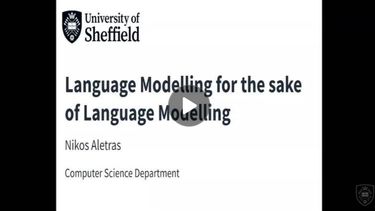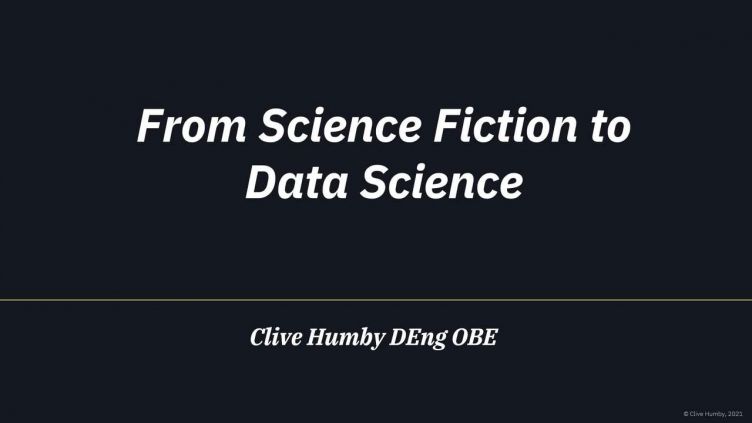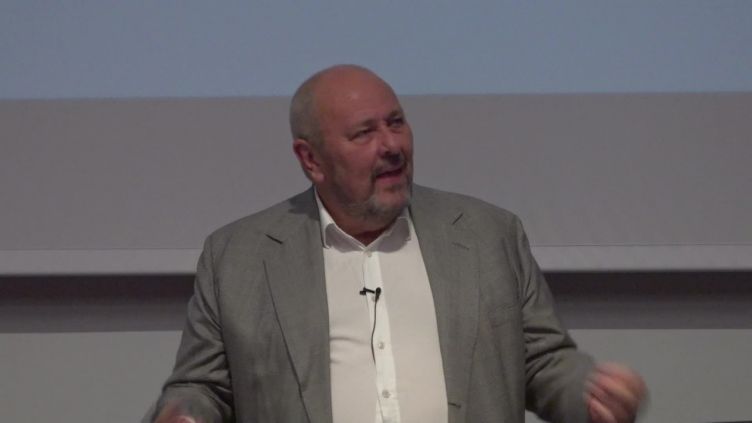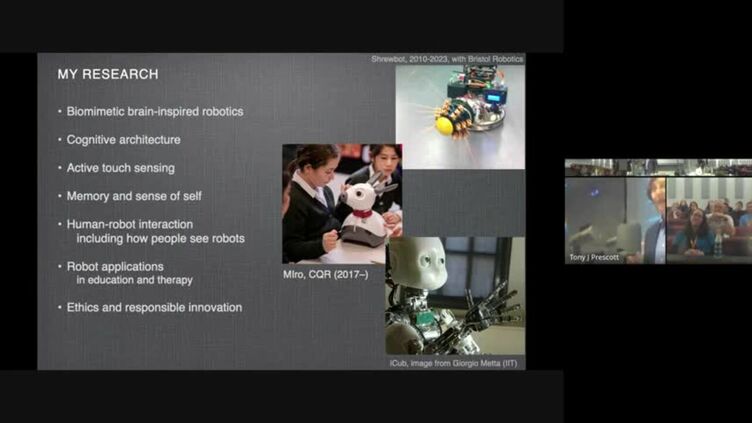Events
We host a number of events in the School of Computer Science.
School Seminar Series
A series of seminars where guest speakers from other institutions join us to deliver a talk and meet our research groups, with the aim of sharing knowledge and forging stronger connections. Details will be posted here
Inaugural Lectures
All new professors, whether they have been internally promoted or appointed externally, are given the opportunity to give an inaugural lecture. The school's Inaugural Lecture series provides an opportunity to celebrate these achievements with each lecture representing a significant milestone in an academic's career.
The normal format is for a lecture of approximately an hour, followed by a celebratory wine reception.
Lectures are open to all University staff and students as well as to members of the public.
Past Inaugural Lectures
- When Deep Learning Meets Computer Vision: Challenges, Solutions and Trends
Professor Jungong Han
Wednesday 8 May 2024
Abstract
For around a decade now, deep learning has revolutionized computer vision research. However, some key questions remain unanswered:
1. Why do deep-learning networks require extremely high dimensions to encode representational information while human vision does not?
2. Can convolutional neural networks effectively represent image/video data?
3. How can multimodal data fusion be achieved in deep networks?
4. How can machines learn from a few annotated samples?In this inaugural lecture, I will discuss our team's efforts to address these questions, highlighting progress and future directions at the intersection of deep learning and computer vision.
- Language Modelling for the Sake of Language Modelling
Professor Nikos Aletras
Thursday 25 April 2024
Abstract
The scientific innovation in natural language processing (NLP) is at its fastest pace to date, driven by advances in large language models (LLMs). LLMs such as Generative Pretrained Transformer (GPT) models power multipurpose chatbots, search engines and coding assistants, unleashing a new era of automation.
In this lecture, I will attempt to give you a sense of how these models work and the challenges they face. There will be a particular focus on how and to what extent LLMs learn about language. I will show that they can retain remarkable capabilities even when training them under extreme settings, i.e. to perform tasks that might be completely incomprehensible to or impossible for humans.- From Science Fiction to Data Science: the evolution of consumer predictive analytics
Visiting Professor of Computer and Information Science, Clive Humby OBE
Thursday 25 November 2022
Abstract: This talk will compare sociology "Mass Action" (e.g. Isaac Asimov Foundation Trilogy) to what we see today in Consumer Data Science and how small actions can influence large numbers of consumers and the methods we developed.
- The making of ourselves: from psychology to robotics
Professor Tony J. Prescott
Wed 28 November 2018
Abstract: This talk will explore how the approach of brain-based robotics is illuminating our understanding of animal and human brains, minds and behavior, from the fossil trails left by precambrain animals, through the brain loops underlying decision-making and exploration in whiskered mammals, to our human capacity for mental time travel. Linking research in neuroscience, psychology and robotics, I will argue that this synthetic (or “understanding through building”) approach can help answer fundamental questions about the human condition including the mystery of the human “sense of self”.
- Go to the bee and be wise: algorithms from nature
Professor James Marshall
Wednesday 28 February 2018
Professor James Marshall is a member of the Complex Systems Modelling research group within the School of Computer Science. His research interests cover modelling of collective behaviour, particularly in social insects, evolutionary theory, decision theory, robotics, and theoretical neuroscience.
Abstract: Honey bees have fascinated humanity for thousands of years, from their ‘political' and ‘economic’ life, to their abilities to solve problems in groups and individually. In this lecture I will talk about my work in understanding how bees work, from collectively choosing the best place to live, to navigating through the world. I will talk about bees’ individual brains, but also about how they might collectively function like a brain. I will discuss what engineering may learn from the bee. There will be bee-inspired robots, and probably some honey.
- The beat goes on... How computer models help us understand how our hearts beat.
Professor Richard Clayton
Wednesday 24 January 2018
Professor Richard Clayton is a member of the Complex Systems Modelling research group within the School of Computer Science. His research interests are focussed on developing physics-based and mechanistic computational models and simulations as tools to examine the structure and function of human tissues and organs. This theme aligns with the INSIGNEO institute for in-silico medicine in Sheffield.
Abstract: Each time our heart beats, an extraordinary sequence of events takes place at spatial scales ranging from single molecules right up to the whole organ. These intricate mechanisms continue to work reliably throughout our lifetimes. So what are they? What can go wrong? And what have computers got to do with it all? In this lecture I will address these questions, and show how an engineering mindset can not only shed light on the way that biological systems behave, but also pose some important scientific questions about the nature of living things.
Guest Lectures
We regularly host guest lectures in the school where distinguished figures from academia and industry and Visiting Professors join us to share their expertise on a variety of topics. Details of upcoming guest lectures will be posted here.
Past Guest Lectures
- The evolution of business, jobs and society as data science becomes more pervasive.
Professor Clive Humby
Wednesday 29 March 2023
Abstract: We are on a journey with data science, machine learning and artificial intelligence becoming more powerful and being applied in more areas every day. We started with areas where data could simplify processes like credit scoring, loan decision and consumer understanding, but as these methods become more powerful and more data becomes available, we see whole new areas like Chat GPT revolutionising areas like copy writing and the legal profession, failure detection via sensors, much more efficient supply chains in areas like engines, manufacturing and agriculture and an explosion in the ability to use facial recognition and other techniques across a growing estate of cameras and CCTV. This raises fundamental questions for the government, society and ourselves. Can legislation and ethics keep up with the explosion in capabilities?
Other Events
- The Psychology of Artificial Intelligence
Professor Tony Prescott
Thursday 23rd January 2025
Abstract:
What is Artificial Intelligence? How will AI impact society? Is AI more powerful than human intelligence?
The Psychology of AI explores all aspects of the psychology–AI relationship, asking how closely AI can resemble humans, and whether this means they could have some form of self-awareness. It considers how AI systems have been modelled on human intelligence and the similarities between brains and computers, along with the current limitations of AI and how these could be overcome in the future. It also looks at how people interact with AI in their everyday lives, exploring some of the ethical and societal risks, such as bias in AI algorithms, and the consequences for our long-term future if AIs do surpass humans in important ways.
As AI continues to break new milestones, The Psychology of AI answers key questions about what it really means to be human, and how AI will impact our lives in every way, now and into the future.





